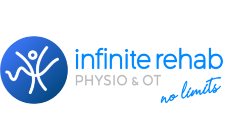A concussion is a disturbance of brain functioning caused by direct or indirect force to the head. It is a mild form of a traumatic brain injury (mTBI) that results in the sudden onset of neurological symptoms that resolve spontaneously or over a varying period of time. Concussions are typically associated with normal structural findings on imaging. They can often be neglected or mismanaged due to the inability to see or recognise symptoms.
Loss of consciousness is seen in <10% of concussion injuries and are often precipitated by rotational forces at the midbrain and thalamus.
Causes of concussions:
- Falls
- Motor vehicle accidents
- – direct blow
- whiplash (acceleration / deceleration injury)
- Sports
- Assault
- Blast injuries
Symptoms can be:
- Physical
- Cognitive
- Emotional
- Sleep related
Post-concussion syndrome. – where symptoms are experienced beyond the expected time of recovery.
2nd impact syndrome: concussed cells are in a particularly vulnerable state. A second concussion while they are in this state may lead to them being irreversibly damaged by the occurrence of swelling. It is a rare, but life-threatening event.
Our physiotherapists can assist you by:
- Accurately identifying and assessing
- Monitoring symptoms and make further referrals if necessary
- Create a graded exercise program that has components to address your neck, balance, vestibular system, incorporate visual and cognitive tasks and increase your heart rate.
- Educate you on rest and a safe way to return to activities
- Creating a falls prevention program to prevent future occurance
Link you into our OT team if needed to provide Assistive technology such as equipment or perform home mods to help prevent future falls.
Nearly everyone has experienced a headache, showing how extremely common they are in daily life, however, when a headache occurs too often, they can cause impacts to one’s quality of life, family and social life. (WHO, 2014).
There are several forms of headaches. The most common form of headache is called a ‘tension-type’ headache which is pain felt typically on both sides of the head and causes a sensation of pressing or tightening, while a ‘cluster’ headache, although rare, usually manifests as one-sided attack bouts, experienced 1-8 attacks per day, lasting between 15 minutes to 3 hours (Migraine & Headache Australia, 2022).
Despite headaches being a common symptom, it can be a very individual condition (Migraine & Headache Australia, 2022). This requires assessment and individualised management that can be offered by a physiotherapist. Our physiotherapy service offers experienced management of headaches by providing a tailored line of therapy ranging from manual therapy to specific motor control exercises depending on the triggers that cause the headache.
References:
World Health Organisation. Headache disorders: How common are headaches? (2014) World Health Organization – who.int/news-room/questions-and-answers/item/headache-disorders-how-common-are-headaches. Accessed on 01 JULY 2022.
Migraine & Headache Australia. Headache Types (2022). Migraine & Headache Australia. https://headacheaustralia.org.au/headachetypes/. Accessed on 01 JULY 2022.
The human balance system is very complex, composed of interacting systems in our ears, eyes and muscles. When one of these systems is out of sync, it causes sensory confusion often reported as the ‘room spinning’, feeling ‘lightheaded’ and nausea. These experiences can be described as dizziness or vertigo (Ear Science Institute Australia, 2021).
Physiotherapy can assist in managing people with dizziness and vertigo through their extensive understanding of how these systems interact closely. Our health service offers a highly experienced vestibular physiotherapist to assess the contributors to dizziness and can intervene using specific manual therapy and positioning techniques as well as motor control and balance exercises.
References:
Ear Science Institute Australia (2021). Vertigo, balance and dizziness. https://www.earscience.org.au/lions-hearing-clinic/vertigo-balance-and-dizziness/. Accessed 01 JULY 2022.
Content to come

